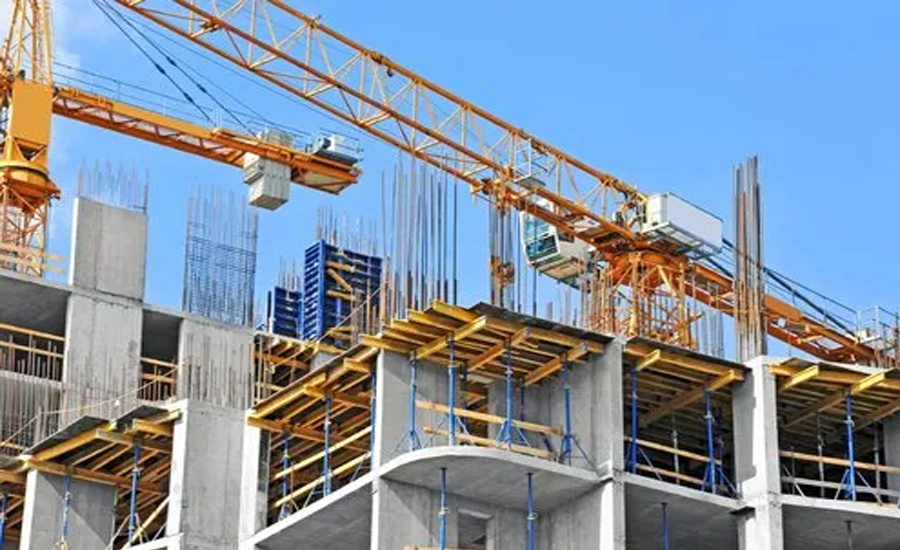
Construction: Building the Foundation of Progress
Construction is the process of creating structures and infrastructure, encompassing everything from small residential homes to massive industrial complexes. It is a cornerstone of human development, transforming raw materials into functional spaces that serve societal, economic, and environmental needs. A construction project involves several stages, requiring expertise, coordination, and precision to bring a vision to life.
Types of Construction
1. Residential Construction
Focused on building homes, apartments, and housing developments, residential construction prioritizes comfort, safety, and functionality. These projects often include single-family houses, multi-story buildings, and community developments.
2. Commercial Construction
This type involves constructing facilities for business and commerce, such as offices, retail spaces, hotels, and entertainment centers. It emphasizes aesthetic appeal, space optimization, and accessibility.
3. Industrial Construction
Industrial projects include factories, warehouses, power plants, and other facilities designed for manufacturing or production. These structures prioritize durability, efficiency, and compliance with industrial regulations.
4. Infrastructure and Civil Construction
This includes roads, bridges, tunnels, airports, and public utilities. Infrastructure projects are vital for economic growth and societal development, requiring advanced engineering and large-scale coordination.
Stages of a Construction Project
1. Planning and Design
Site Analysis: Assessing the location's feasibility, soil condition, and environmental factors.
Architectural and Structural Design: Creating detailed blueprints and models that guide the construction process.
Permits and Approvals: Securing legal permissions and complying with local building codes.
2. Pre-Construction
Cost Estimation: Preparing a detailed budget, including materials, labor, and overhead costs.
Procurement: Sourcing materials, equipment, and skilled labor.
Project Scheduling: Developing timelines to ensure efficient workflow.
3. Construction Phase
Site Preparation: Clearing the land, leveling, and laying the foundation.
Structural Work: Erecting the framework, including walls, beams, and roofs.
Systems Installation: Adding plumbing, electrical wiring, HVAC systems, and other utilities.
Finishing Touches: Completing interior and exterior finishes, such as painting, flooring, and landscaping.
4. Post-Construction
Inspection and Testing: Ensuring the structure meets quality and safety standards.
Handover: Delivering the completed project to the client, ready for use.
Maintenance: Providing long-term support and repairs if necessary.
Key Components of Construction
1. Materials
Construction relies on materials like concrete, steel, wood, glass, and composites. The choice of materials impacts durability, cost, and environmental impact.
2. Labor
Skilled labor, including architects, engineers, contractors, and construction workers, is essential for executing complex tasks with precision.
3. Technology
Modern construction employs advanced tools and technologies, such as 3D modeling, drones, and automated machinery, to improve efficiency and accuracy.
4. Project Management
Effective management ensures that projects are completed on time, within budget, and according to specifications. It involves coordinating resources, monitoring progress, and mitigating risks.
Challenges in Construction
1. Cost Overruns
Unexpected expenses, delays, or design changes can lead to budgetary issues.
2. Regulatory Compliance
Navigating building codes, environmental regulations, and safety standards requires expertise and vigilance.
3. Labor Shortages
The construction industry often faces a shortage of skilled labor, impacting project timelines and quality.
4. Sustainability
Balancing environmental concerns with the need for development is a growing challenge in modern construction.
The Role of Construction in Society
Construction plays a pivotal role in shaping communities, enabling economic growth, and improving quality of life. Key benefits include:
Job Creation: The industry employs millions of workers worldwide.
Economic Development: Infrastructure projects boost trade, connectivity, and business opportunities.
Sustainability: Modern construction techniques prioritize eco-friendly materials and energy-efficient designs.

